This story is about the experiences of several families whose lives were turned inside out one beautiful but terrible morning, October 7, 2023, by an event that would change not only their community but their entire country, the State of Israel.
Early that morning, 3,000 members of Hamas and allied terrorist groups penetrated Israeli towns and villages along the Gaza Strip border. Approximately 70 Hamas gunmen descended upon Kibbutz Be’eri, methodically moving from house to house and targeting entire families. The assailants executed parents in front of their children and children in front of their parents, ignited homes with families still inside, and seized hostages, forcibly taking them back to Gaza. On that day, Hamas abducted over 240 Israelis and foreign nationals; at least 26 of these were from Kibbutz Be’eri.
As we write this story, the Israeli military is investigating the possibility that four individuals believed to have perished at Be’eri may instead be captives. The precise toll and identities of the victims linger in uncertainty, as some remains discovered at the site defy identification.
This documentary narrows its lens to the events of that catastrophic day as experienced by several families. It also acknowledges the anguish of many hundreds more, whose loved ones were slain, kidnapped, or remain unaccounted for since October 7.
What follows is a transcript of the newly released documentary, Burning in the Hearts of Be’eri.
Felice Friedson: They called it a paradise on the border of Israel, they felt safe and at home with generations of family.
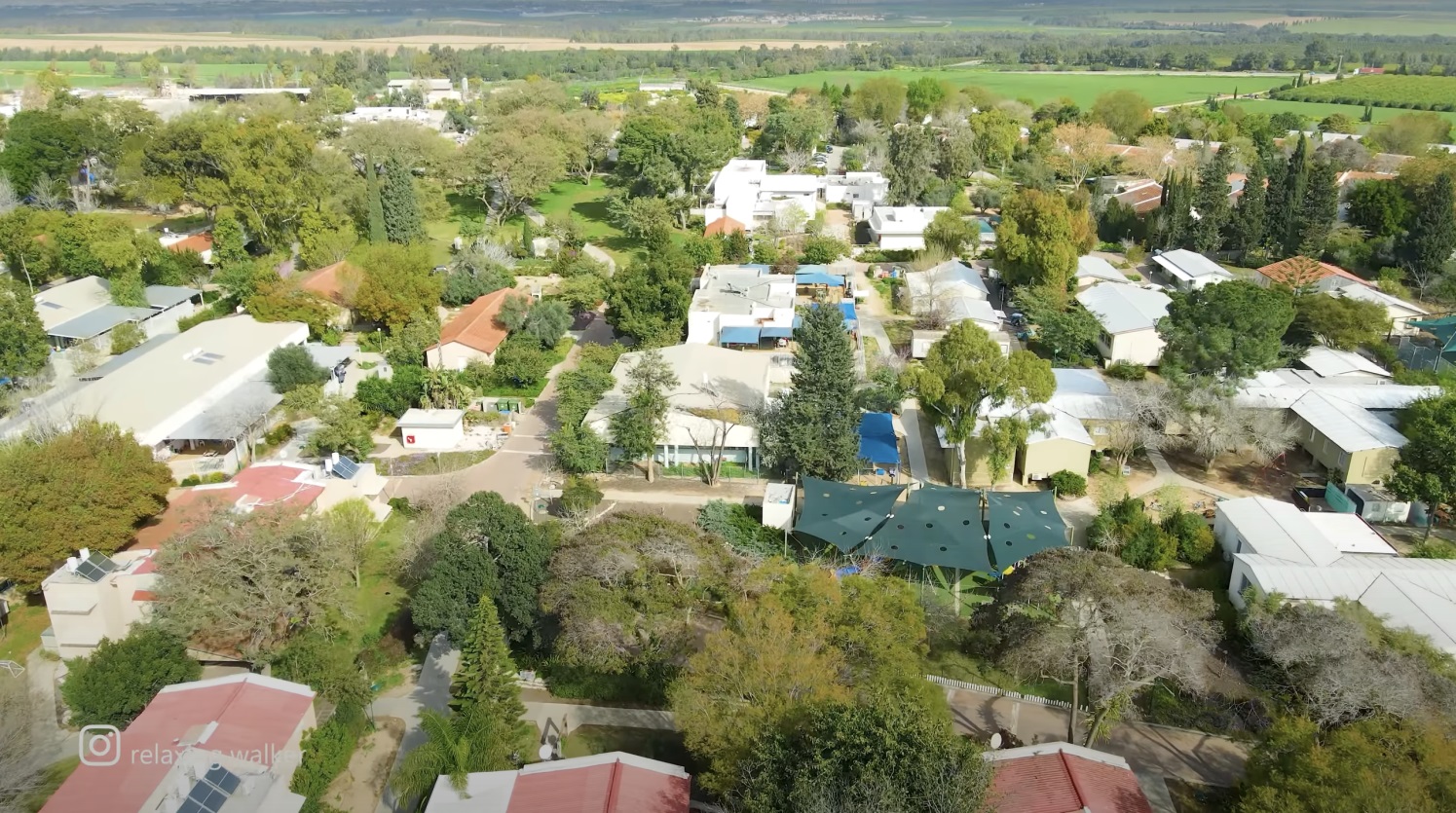
Kibbutz Be’eri … like a paradise. (Courtesy)
Thomas Hand: It was a great place to bring up your children. To live. To work. It was a perfect world. It was a bubble of safety.
Dalia Weissman: It was a kibbutz, like you were walking in paradise.
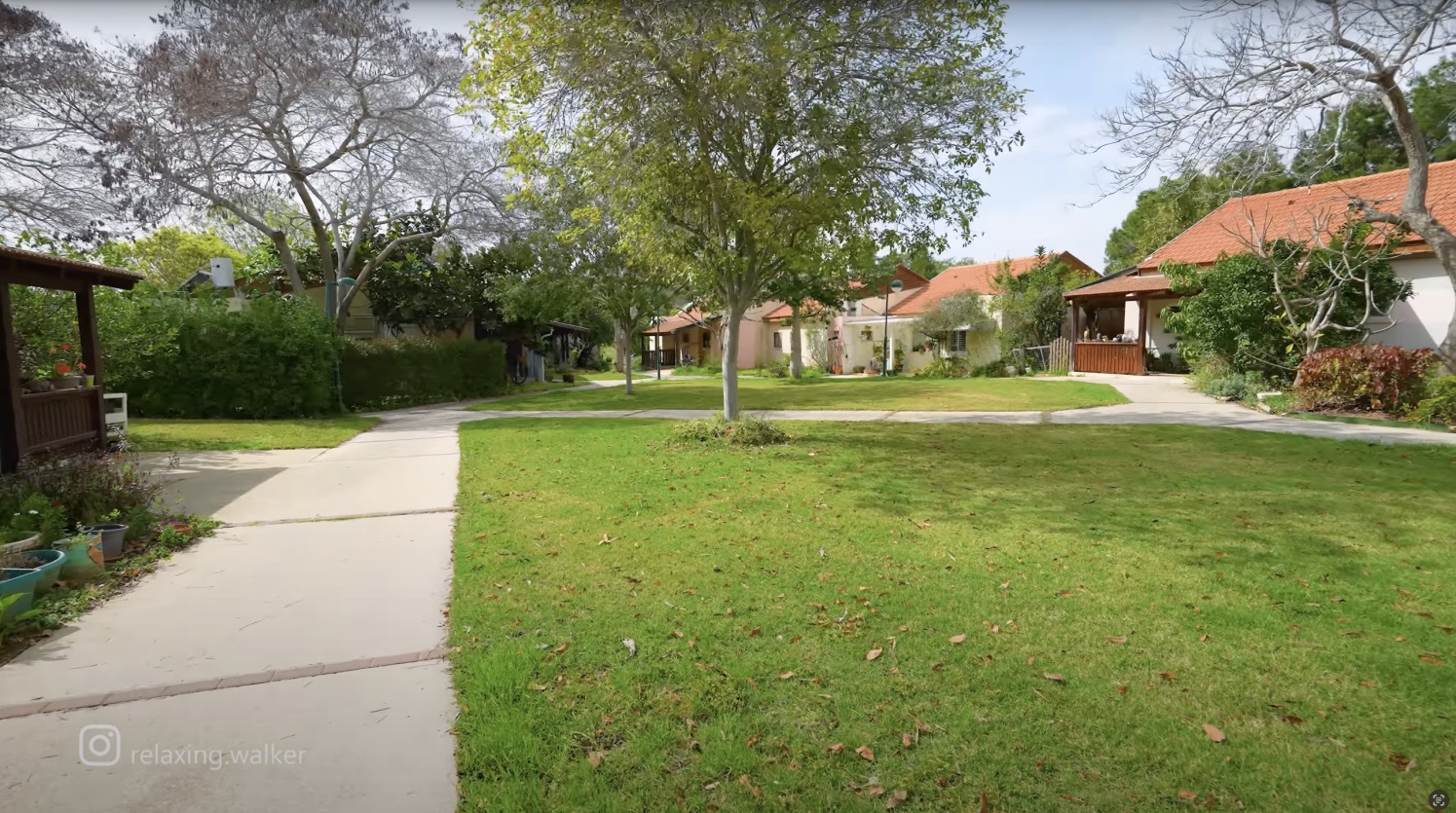
Like walking in paradise… Kibbutz Be’eri. (Courtesy)
Ella Ben Ami: We are a very strong community. We are like a big, big family. I love the community.
Nira Herman Sharabi: I want my husband, and I want my Ofir, my daughter’s boyfriend, I want Amit, the son of my neighbor, I want everybody to come back home.
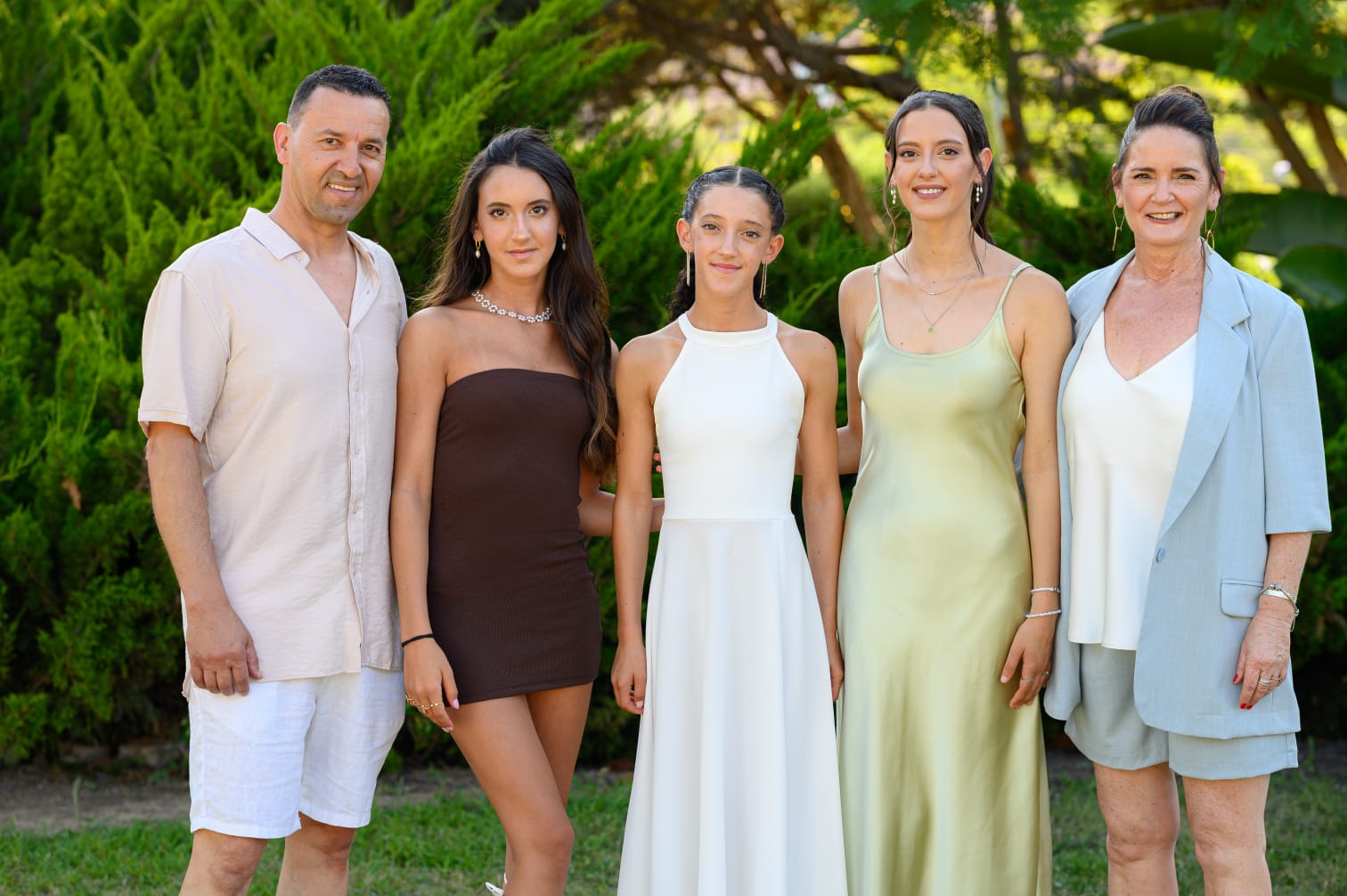
Yossi Sharabi, abducted to Gaza, with wife Nira and their family. (Courtesy)
Thomas Hand: I can live with the grief of her being dead. I couldn’t have lived with the mental torture of what torture and conditions she would have been going through.
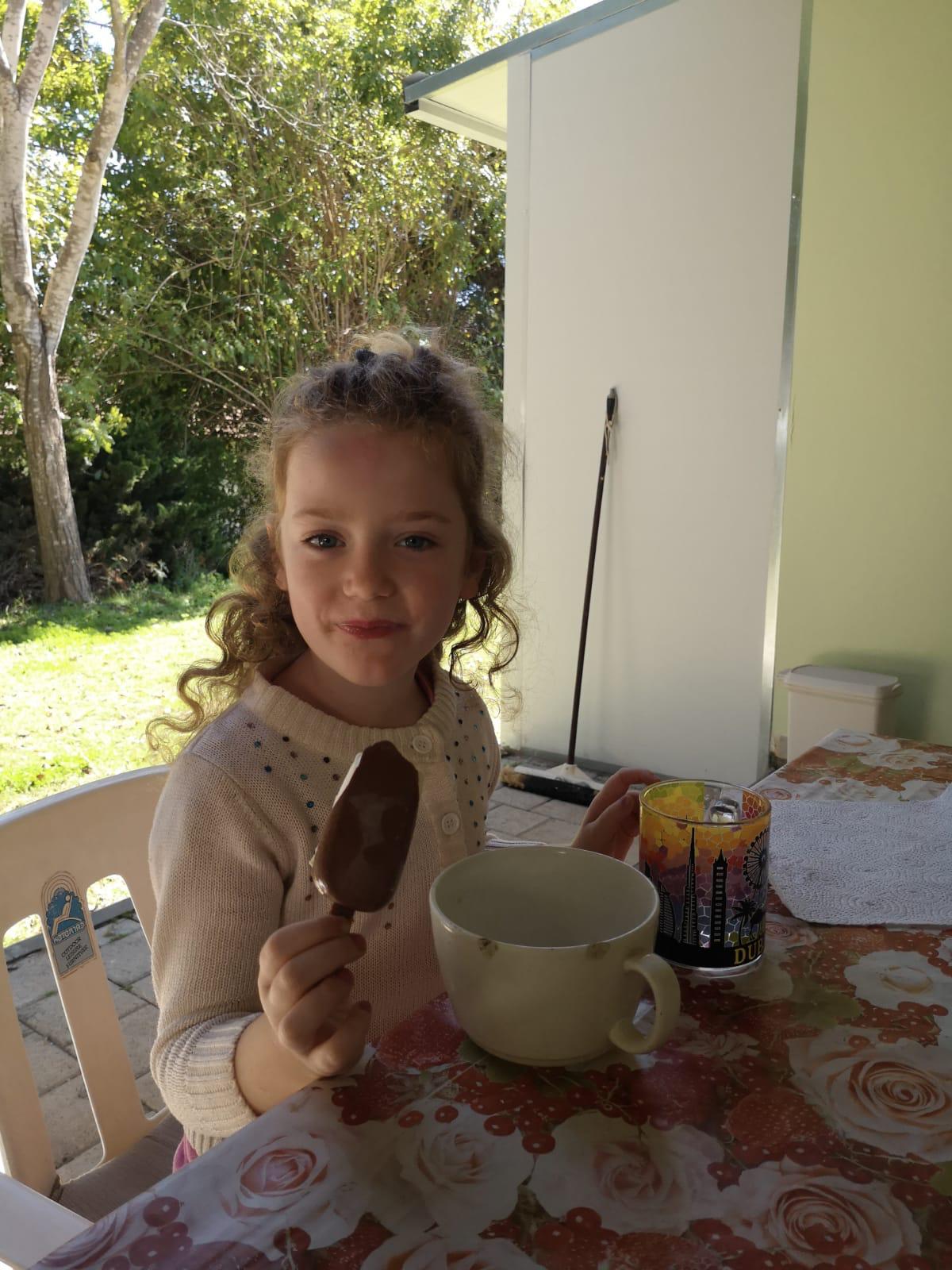
Emily Hand, daughter of Thomas Hand, murdered. (Courtesy)
Gal Cohen: We go from funeral to funeral, sometimes seven a day.
Ella Ben Ami: We just sat there and waited for death, or that someone would come and save us.
Felice Friedson: Thousands of Hamas terrorists infiltrated the Gaza border, which lies along this community, which was hardest hit. It’s Kibbutz Be’eri, where more than 100 people were murdered. Only a little over 1,000 people are residents here. Take a look at this home, which was destroyed. It was attacked by fire, and a family’s table here was set ready for a holiday. It was a Sabbath and a Jewish holiday as well.
And look out here, and you see blown-out windows and someone placed an Israeli flag, but the whole community has been devasted like this. Some worse than others. It’s a sight that I think that the world is trying to absorb, where you see many families had not just been burned alive, but they were stabbed, they were tortured, they were raped.
It was one of the most devastating moments in the history of Israel.
Rami Gold has been a kibbutz member for 35 years and used to be on the emergency squad until the army decided he was too old to be responsible for a rifle. Attentive to sirens, Rami called to see what was happening and was told to come over. He rode on his bike, not knowing Hamas was there, and half of the squad was disabled. He was there for 12 hours until the army came.
Rami Gold: Now we are in grief burying people by the hour. I don’t think we fully understand ourselves.
Look, you have to understand, the defenses you see in back of you, a lineup of machine guns on them like ISIS. They were shooting at the fence while they were driving towards the entrance of the kibbutz. Once they got in they started blowing up everything in sight, and every team of them knew where they were going. Everybody is either dead or displaced.
When they came out, not all of them had weapons, so they used knives, axes, hammers. They killed everything in sight. My neighbor, a woman with a baby in her arms, was shot through her baby. She’s alive, but what kind of life is she going to have without the baby in her arms?
She lost her husband and another son.
Ella Ben Ami: At 6:30 in the morning, we heard a lot of bombs. We didn’t know what it was, but it is usual. It happens all the time. And we thought it was something usual.
Gal Cohen: It was something different. I could feel right away that it was something very, very massive.
And I saw these two guys dressed up really [thoroughly] and the green thing, the green bandana that Hamas wears, and I realized immediately that was the thing, and I called the security team.
Thomas Hand: Once I realized that the situation was bad, I could hear gunshots all around getting closer, now I shut the door [of the safe room]. I locked the Mamad [safe room] door as far as I knew. We never tested it.
Nira Herman Sharabi: We called to our daughter. She was with her boyfriend. She’s 17 years old and her boyfriend was there for the weekend. And we called everybody to come out from the rooms and another girl, and we went to the safe room.
After something like half an hour, it was something like [that], we started to hear some Arabic around us and shouting.
Thomas Hand: The local WhatsApp groups and stuff, you’re reading every couple of minutes, there’s terrorists in my house, there’s terrorists breaking into my Mamad, my bomb shelter, where’s the army? Where’s the army? Where’s the army?
Nira Herman Sharabi: And after a few minutes, you start to read messages like they shot my mom. They shot my brother. Please, someone, come here! Someone came to see us. What’s going [on]? Where is the army? Where is someone to save us? A lot of messages going around.
Gal Cohen: We tried to lock the shelter and we couldn’t lock the shelter, so I grabbed a knife. I said at least I’ll take one.
Ella Ben Ami: My dad wrote to me on WhatsApp, that they heard, my mom and my dad, a lot of terrorists outside the house.
He wrote to me at 9:30 that they [the terrorists] are inside their house. And there are a lot of them and they are going upstairs and they are breaking stuff, they are breaking the door, and they are doing a lot of mess. And then, half an hour later, at 10:07, my dad wrote me that they were inside the shelter.
I saw a picture of my father an hour later on Telegram with two terrorists that are holding him and he is in boxers and barefoot and I heard from him … nothing.
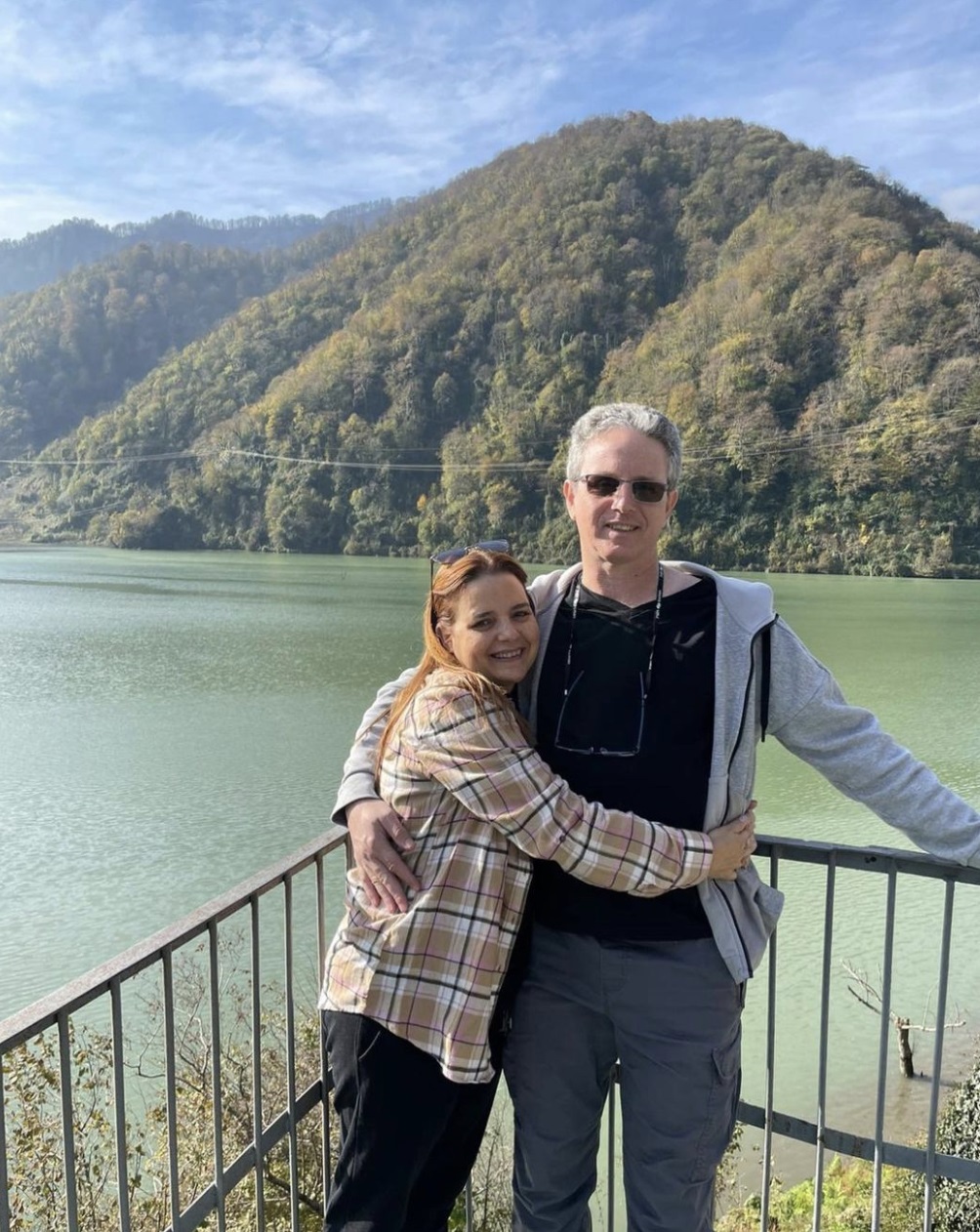
Ella Ben Ami’s parents, Raz and Ohad Ben Ami, abducted in Gaza. (Courtesy)
Dalia Weissman: She wrote me that she is hearing many, many bombs and she is hearing “[Allahu] al-Akbar” and she asked me, “Mommy, where are the army? They’re not here?”
Gal Cohen: If they knock on the door and you don’t come out, they will burn the house and then you’ll get choked with smoke and then jump from the window, and then they will shoot you.
Nira Herman Sharabi: And they came. We heard them going up the stairs and breaking the door in the house, and just going around the house, like, talking and laughing and opening places. And it was just a matter of time that they would come to our safe room.
And we saw them trying to open [the door]. We have a dog also in our safe room. A small dog. He didn’t do harm to anybody. And they just opened the door, and suddenly three terrorists go to our safe room with weapons [drawn]. They shoot the dog. At the beginning, they shoot the dog. And me and my husband, we just did like this. We held up our hands and said, “Please don’t hurt us! We didn’t do anything. Don’t hurt us!”
And they just spoke in Arabic and they told us, “Do you have a gun? Do you have something?” And we told them, “No. No. We don’t have anything there.”
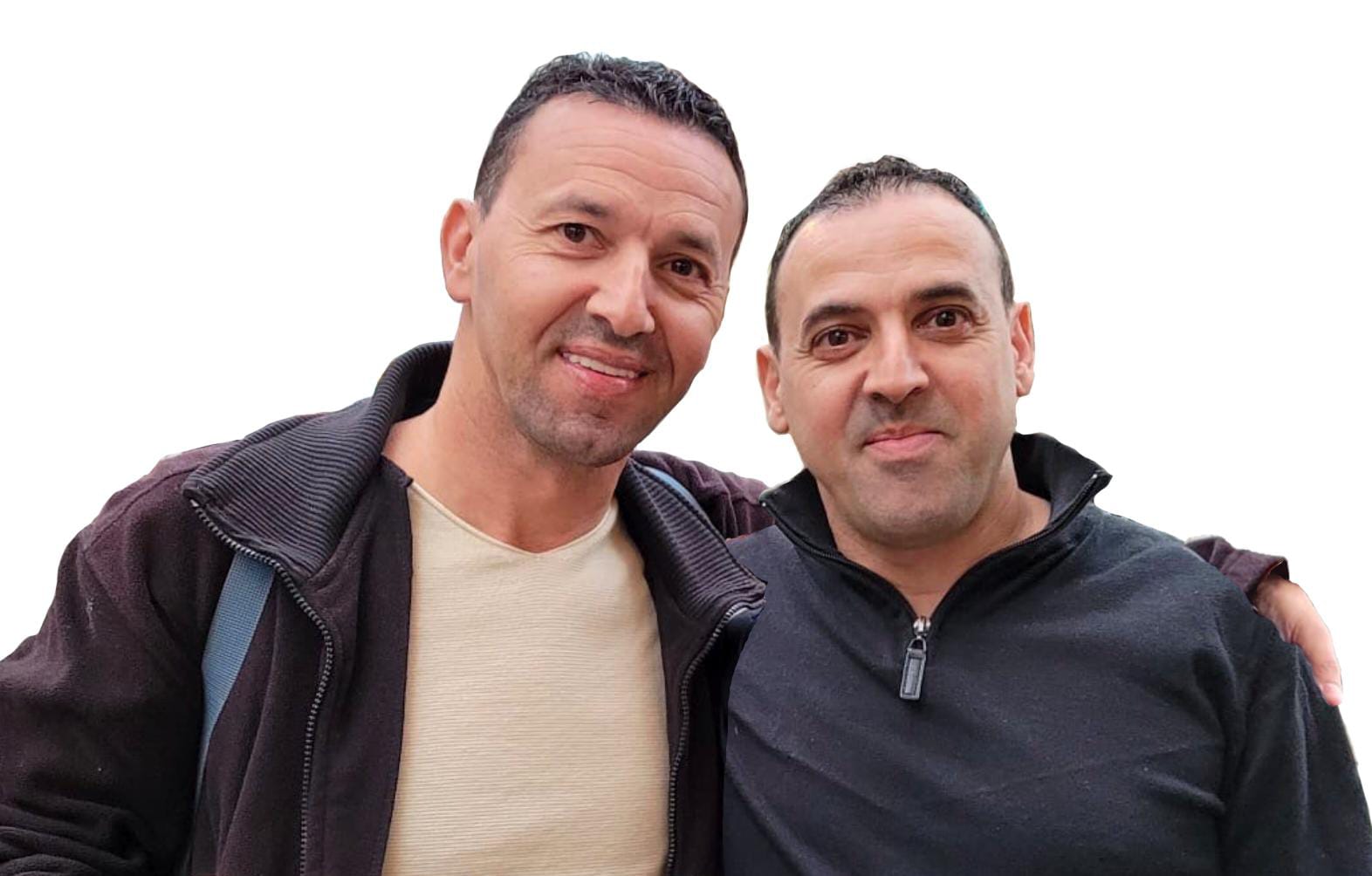
Brothers Yossi and Eli Sharabi, both abducted to Gaza. (Courtesy)
Thomas Hand: I knew that I’d have been overpowered, but that was my best chance. So, for 14, 15, 16 hours, time is sort of irrelevant, I just sat by the window. I couldn’t go to the toilet. I couldn’t eat. My sink in the kitchen is just there, but I’d turn around just to have a drink of water.
I couldn’t protect my daughter. She was at her friend’s house.
Nira Herman Sharabi: They took us from the house, and they brought us downstairs to the garden. They took our phones with their weapons [aimed at us]. All three terrorists. They were dressed in black with the whole package and everything. And they let us sit in the garden.
There was another mother, my neighbor with her three kids. It was a teenager, and Amit, who was kidnapped with my husband. And Ofir, the boyfriend of my daughter. And the two daughters were sitting there. And they let us sit there. And they took pictures, a selfie, you know, to spread it all around. And they just took the flag. We had a flag of Israel down in the house, and they just ripped it and they started to smash it. And they start to yell in Arabic, “Down with Israel! This is Palestine! This is not Israel! Israel does not exist! Kill all the Jews!”
And they told us to get up and they moved us to a point of a road, and there was a small car waiting there and two of the terrorists came with their weapons and talked to Yossi, my husband, and to Ofir, my daughter’s boyfriend. And to Amit. They told them to go inside the car.
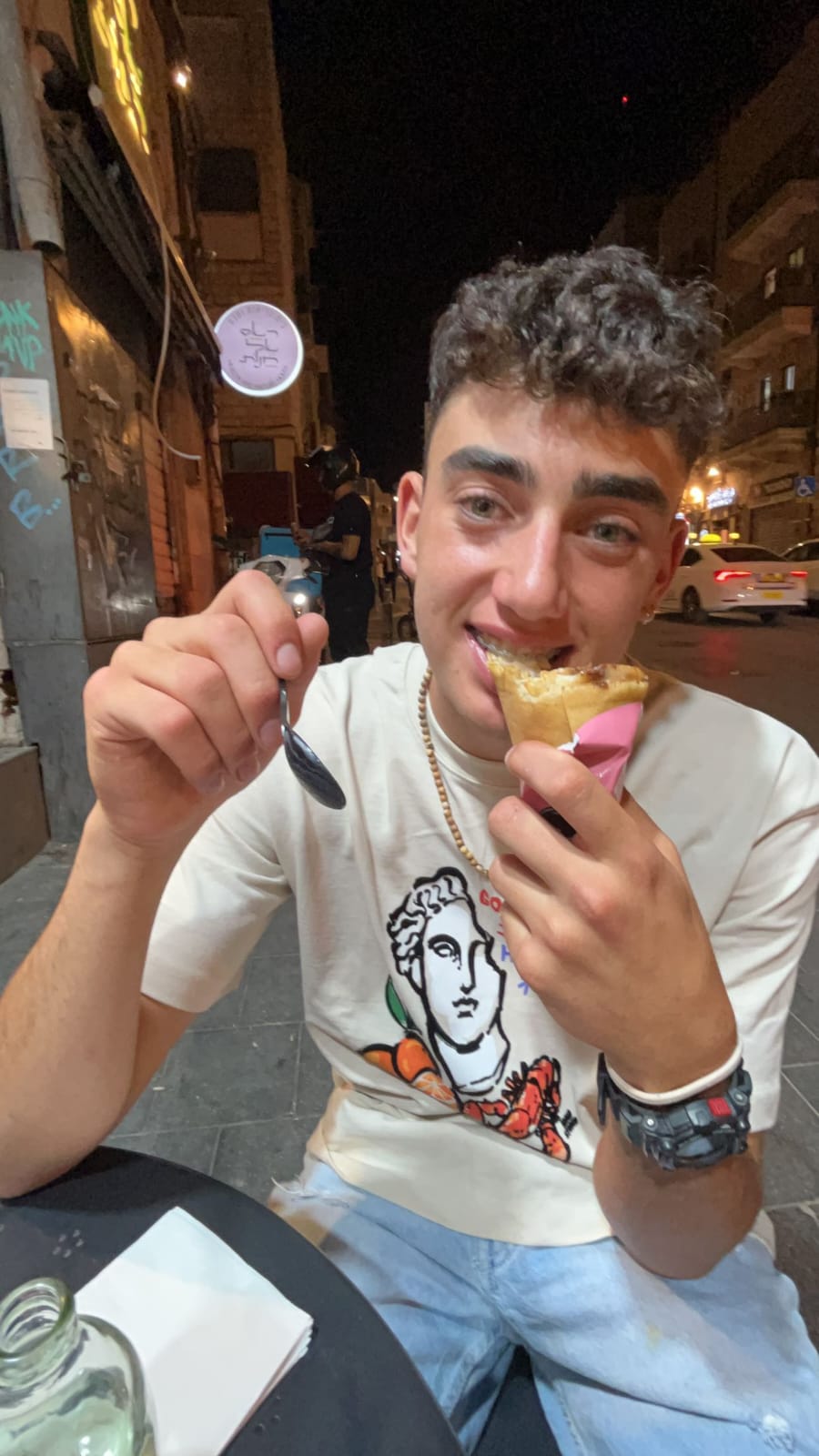
Ofir Engel, abducted to Gaza. (Courtesy)
Dalia Weissman: He was shouting when they took him, and he told her, “Mommy, be quiet. They will kill us!” And then he was like this and they tied his hands [behind his back] and he went to the car. And he said, “It will be OK,” to my daughter. “It will be OK.” And then he went.

Amit Shani, grandson of Dalia Weissman, abducted to Gaza. (Courtesy)
Thomas Hand: I rang Narkis, my ex-wife. I rang Narkis and told her, get in your Mamad, lock the door, if you hear terrorists in your house, hold the handle locked, because again, I don’t know if it was properly safe. Wedge your shoulder against the door frame and hold on as long as you can.

Narkis Hand, ex-wife of Thomas Hand, murdered. (Courtesy)
Nira Herman Sharabi: All of this time you hear shooting and shooting and bombs and fire everywhere around. And smoke. And black smoke. You know, a lot of terrorists are running all around, dressed in black.
Thomas Hand: The closer you live to the road, the harder you are going to be hit, because they came in on transport so they’d stop and go through the line.
Nira Herman Sharabi: So, we’ve been in another room in the house. We just lay down there, everybody on the floor.
My daughter was telling me very quietly, Mom, I love you so much.
Everybody touched everybody [else] so nobody is going to miss everybody. And sometime around 4:30 or 5 o’clock [pm], because we didn’t have a watch, we didn’t have phones, we heard the Hebrew soldiers fighting and shooting with the terrorists.
Thomas Hand: Later on, that night, the army came finally and saved us and saved our neighborhood. Most of us got out, and I didn’t know anything about my ex-wife. I didn’t know anything about my daughter until three days later. Members of the kibbutz told me that they found Emily. They found Emily in the kibbutz, and they found her dead.
Nira Herman Sharabi: We get up and say, “Please don’t shoot at us! Please don’t shoot at us! We are Israelis.”
And I saw them and I can’t believe it and I’m crying. And everybody is crying. And these angels, our soldiers, are just looking around behind the window and they told us, we are just soldiers. Don’t worry. We came to save you.
Ella Ben Ami: Maybe at 9 [pm] my friend called me and said, I’m with a lot of soldiers outside your apartments, come out. We are going out of the kibbutz. So I went out with my partner and the kibbutz was not what we knew. I didn’t know the kibbutz, all the houses were burned to the ground, and a lot of dead bodies were on the floor.
Gal Cohen: Some of my best friends got slaughtered there, and I couldn’t do a bloody thing.
Nira Herman Sharabi: They told us to cover our eyes, but I couldn’t, so I looked around and saw the road. A lot of bodies. A lot of blood there, all around. And one of the kids said, “Mom, what is this?” And the soldiers said, “No. No. No. Don’t worry. It’s a terrorist. It’s none of us.” But we don’t really know if it was our citizens or if it was the soldiers or the terrorists that were there.
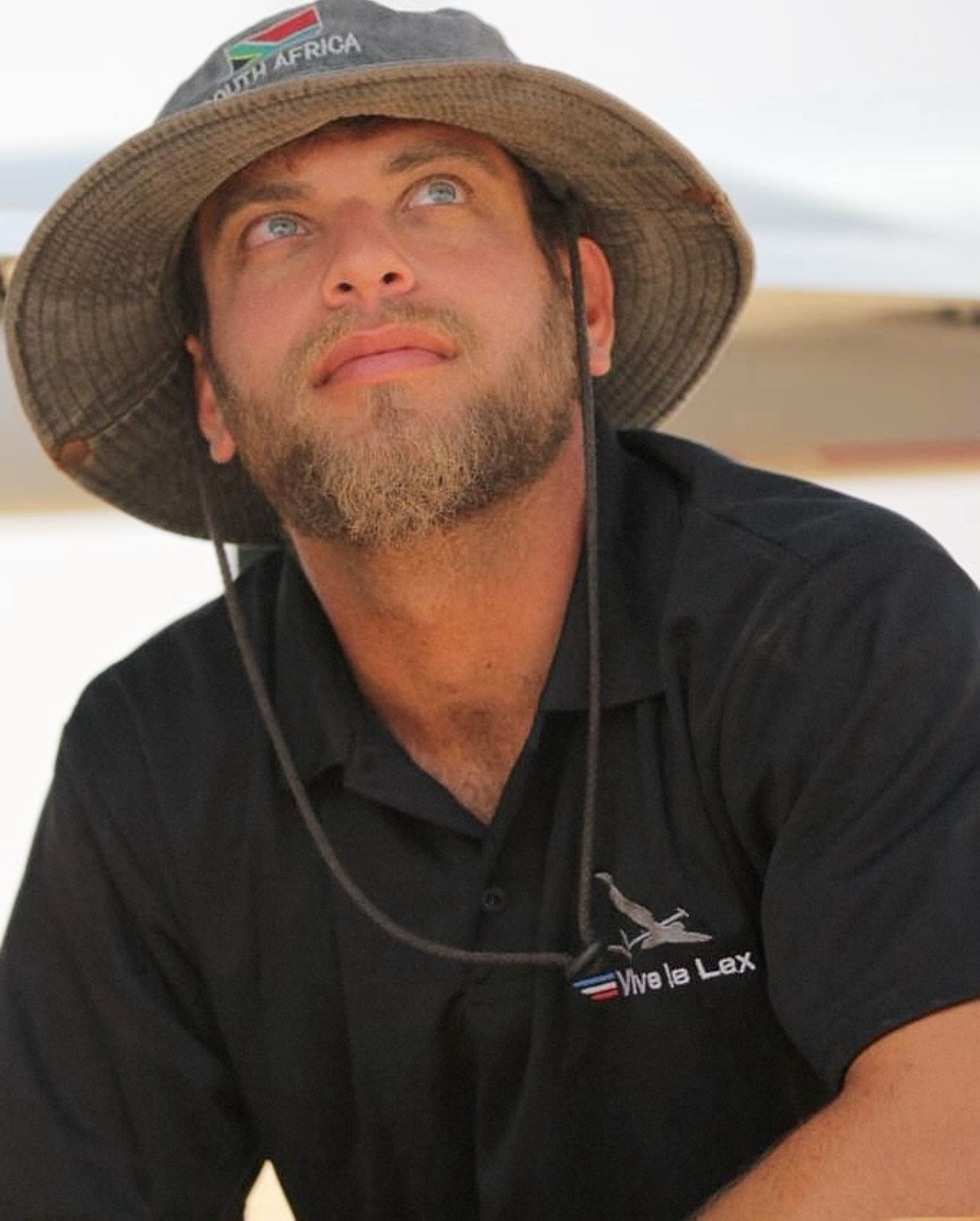
Idan Herman, nephew of Nira Herman Sharabi, murdered. (Courtesy)
Gal Cohen: You see the kids that stay with no parents, and they cry and tell you the story, how they shot their brother, and how the father [lost] a lot of blood and didn’t move and didn’t talk.
Ella Ben Ami: All of them with black on their faces from the burning from the fire. And actually, me and my sister look all over the people and look for our parents or family. And there was nothing, they weren’t there.
Felice Friedson: Once the army arrived, many of the families had minutes to collect a few items and depart the kibbutz for safety or medical assistance.
Thomas Hand: The army came in and said, you have a minute to grab your stuff and get out. It was under heavy gunfire as well.
Felice Friedson: Twenty-nine members of Kibbutz Be’eri were taken hostage, four are still unaccounted for, and more than 100 are dead. Among them are the relatives of Nira Herman Sharabi, Ella Ella Ben Ami, Dahlia Weissman, and Thomas Hand.
Thomas Hand: She was a beautiful little girl. A sweet, innocent angel. She absolutely loved life, even though at the age of 2 and a half she lost her mother to breast cancer.
Felice Friedson: What do you think happened in terms of an intelligence breach that day?
Gal Cohen: I wish I knew. I don’t know because the way it happened is not a script that we ever thought would happen, for so many hours to wait in the shelter with nobody coming to help. It’s something nobody, you, ever dreamed.
Ella Ben Ami: It’s very hard here because every family lost somebody. There isn’t a family that isn’t lost. And we all lost together.
The most important thing to me is that my mom will get her medicines or medications because if she does not get them, even if they don’t shoot her or do something to her, she will not survive.
Felice Friedson: So many questions remain unanswered. The deep scars that will stay with these families and the entire nation of Israel, where these families will live, if their loved ones being held hostages will come back home, and ultimately, how did October 7th ever happen?
Ella Ben Ami: I love Be’eri. It’s my home. I will build it with my own hands if needed. I will live in Be’eri, but with my parents and with no threat from anybody because it’s my home. It’s my safe place.
Dalia Weissman: He’s coming back home, I am sure.
Felice Friedson: The survivors of the massacre in Be’eri are now residing in hotels throughout the country. Looking into the eyes, seeing the tears, and feeling the hugs of this close-knit kibbutz community. They are determined to rebuild and stick together. Life will never be the same for any of the members of Kibbutz Be’eri and all those who lost dear ones on that very black day.
Dalia Weissman: The 7th of October, for me and my family, it’s something very, very big is broken. We don’t believe anymore. We understand that we can’t be neighbors. We can’t be friends. They are not thinking like us. We saw something else. We don’t understand how they think. We don’t understand anything, and this will not be again.
Ella Ben Ami: Right now, I don’t know who is involved and who is not involved and it’s very confusing and terrifying to know that there is a war between us.
Dalia Weissman: The world must understand this. Today it’s here. Tomorrow it will be maybe in another country. Terrorists must be wiped out. Absolutely! They are not human beings.
Felice Friedson: Behind me are candles that are lit in the memory of many of their loved ones who will never come back. Many of them are waiting to hear if their loved ones were murdered or are being held hostage in Gaza. Their lives have been turned upside down, and they do not know where they are going.
From The David Hotel at the Dead Sea, Felice Friedson with Debbie Mohnblatt reporting for The Media Line.
Dario Sanchez contributed to this report.
To read more articles from The Media Line, click here.








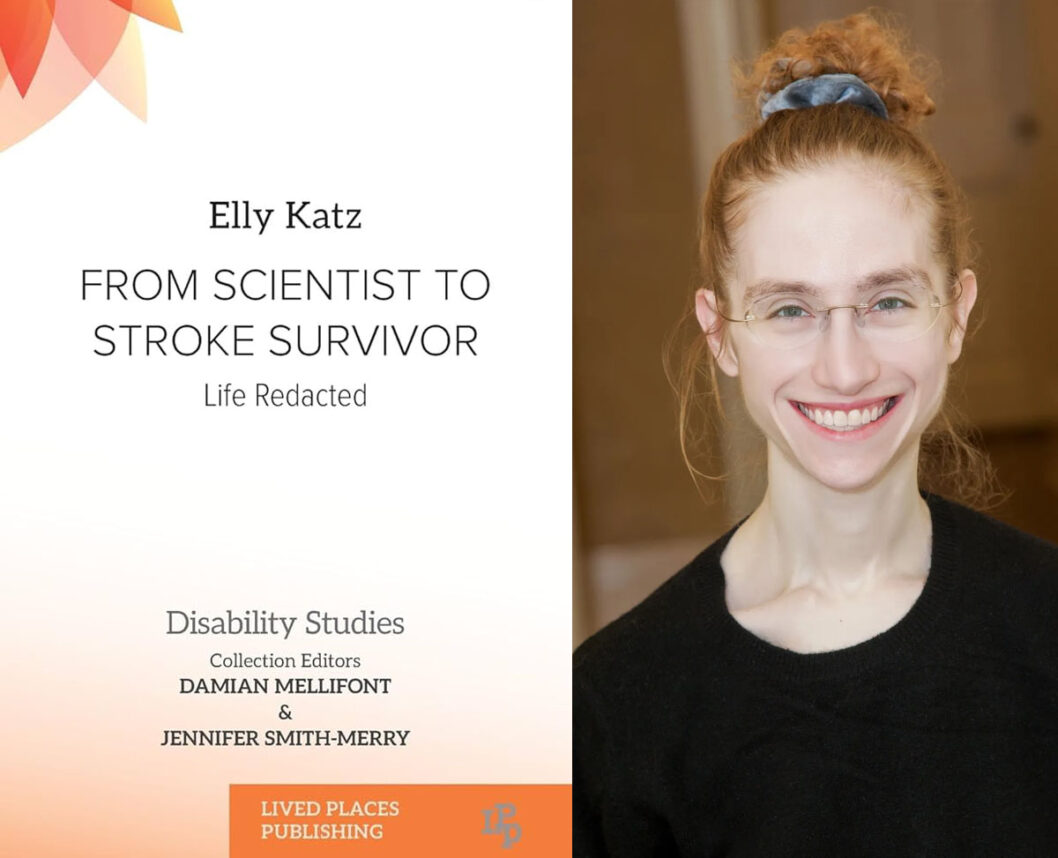
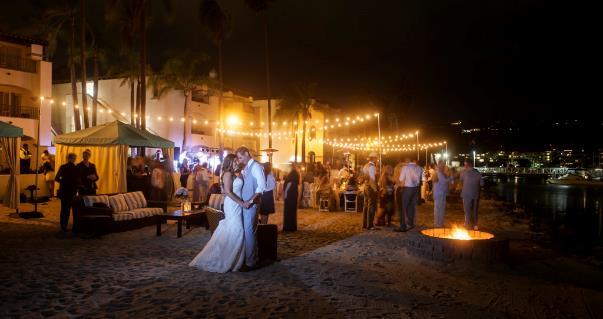

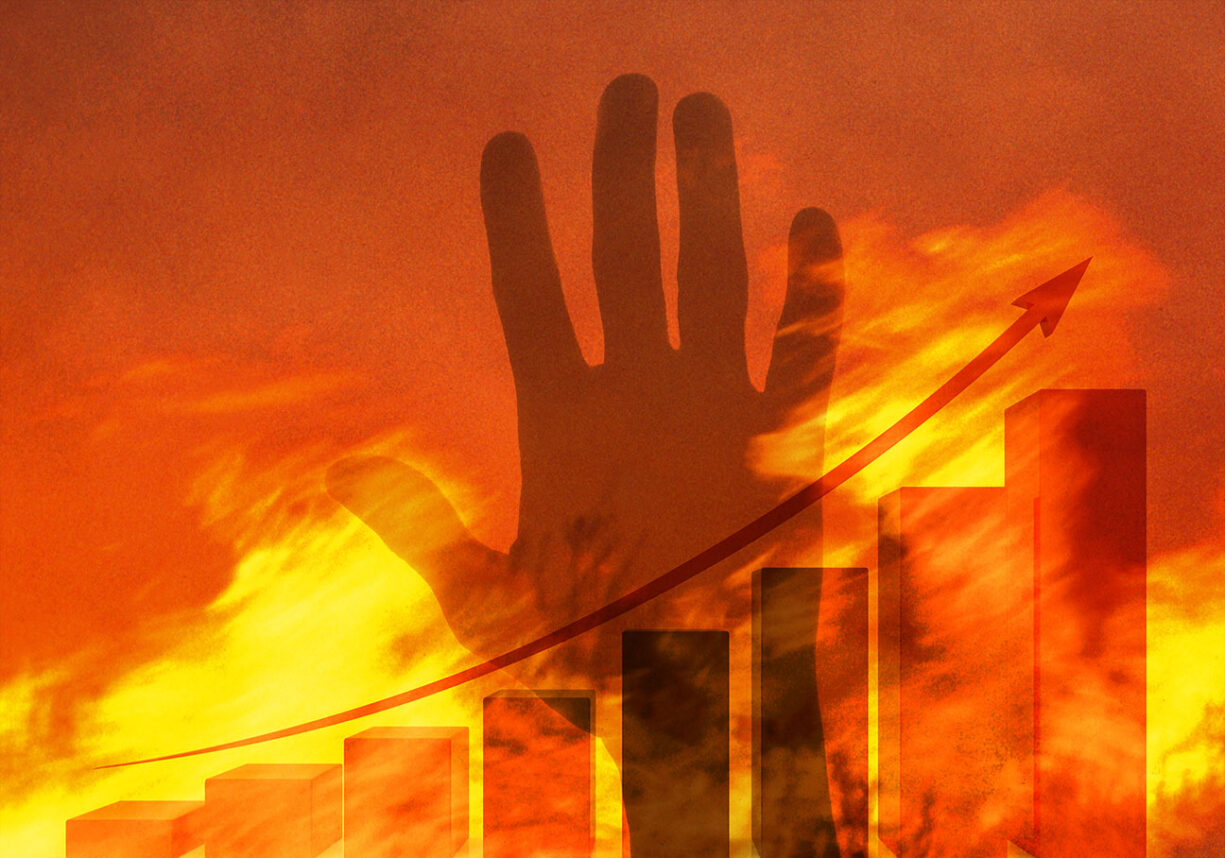
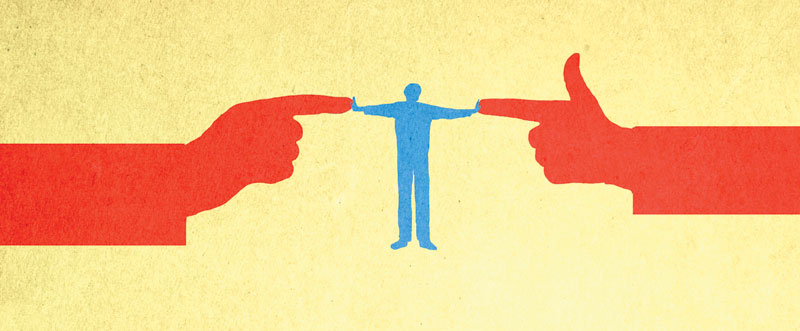
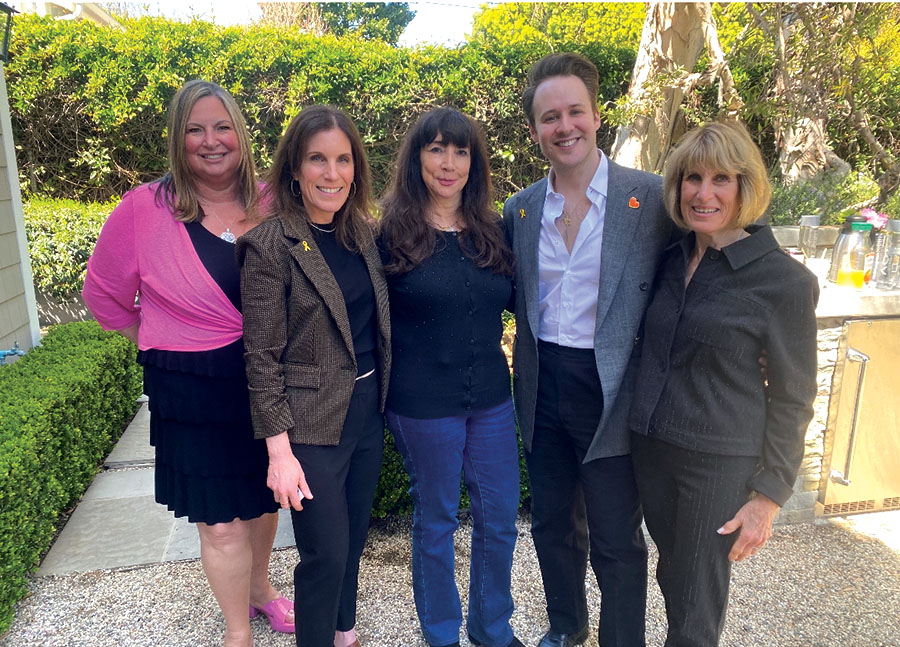
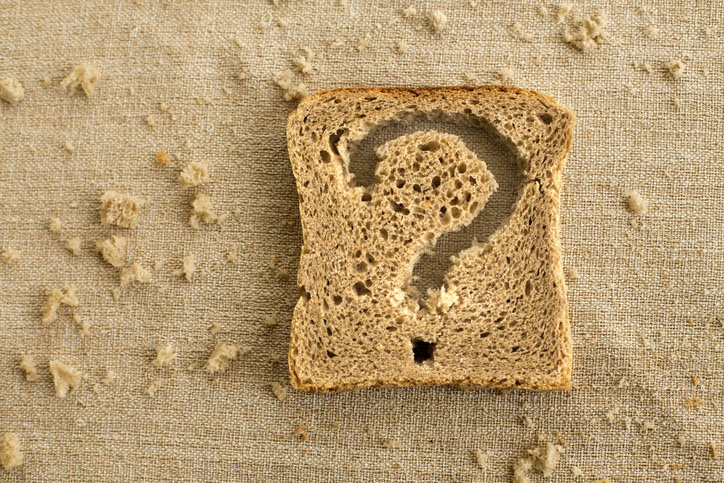
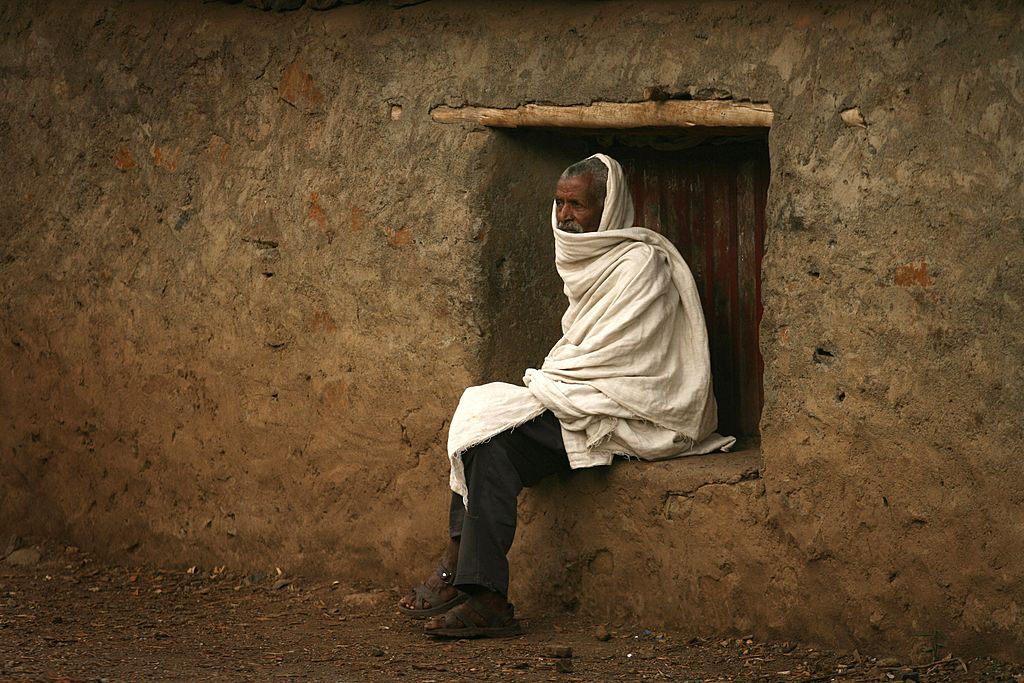



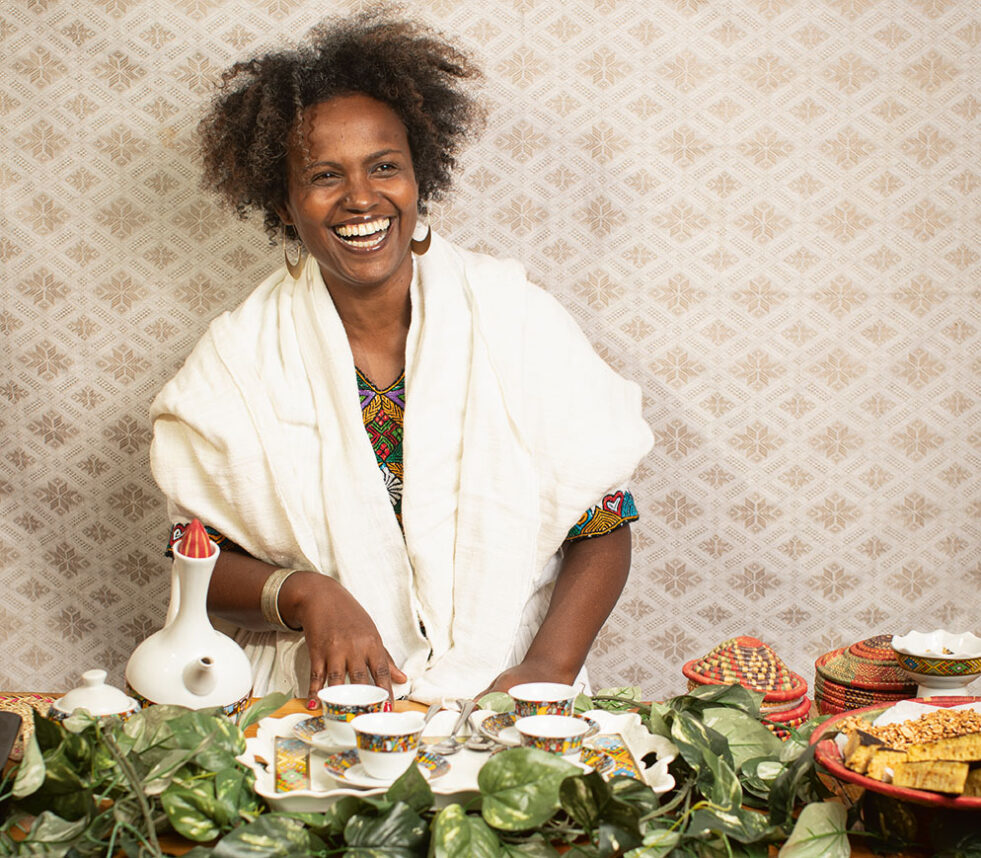


 More news and opinions than at a Shabbat dinner, right in your inbox.
More news and opinions than at a Shabbat dinner, right in your inbox.